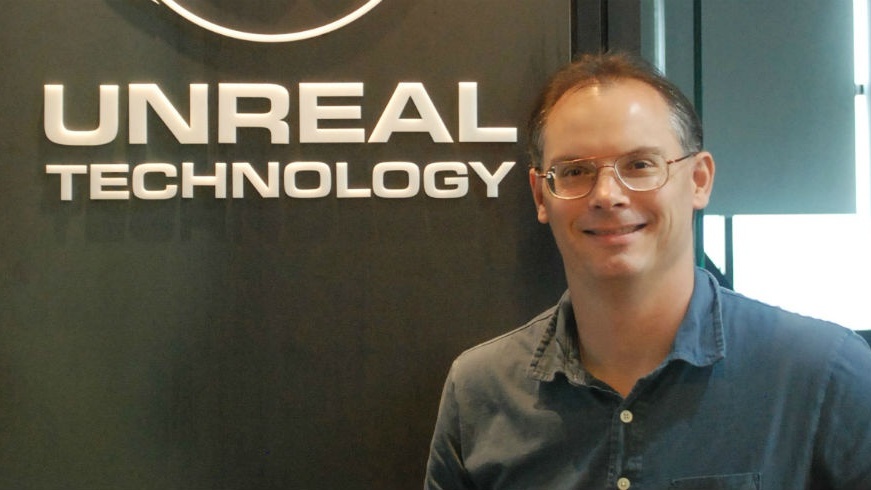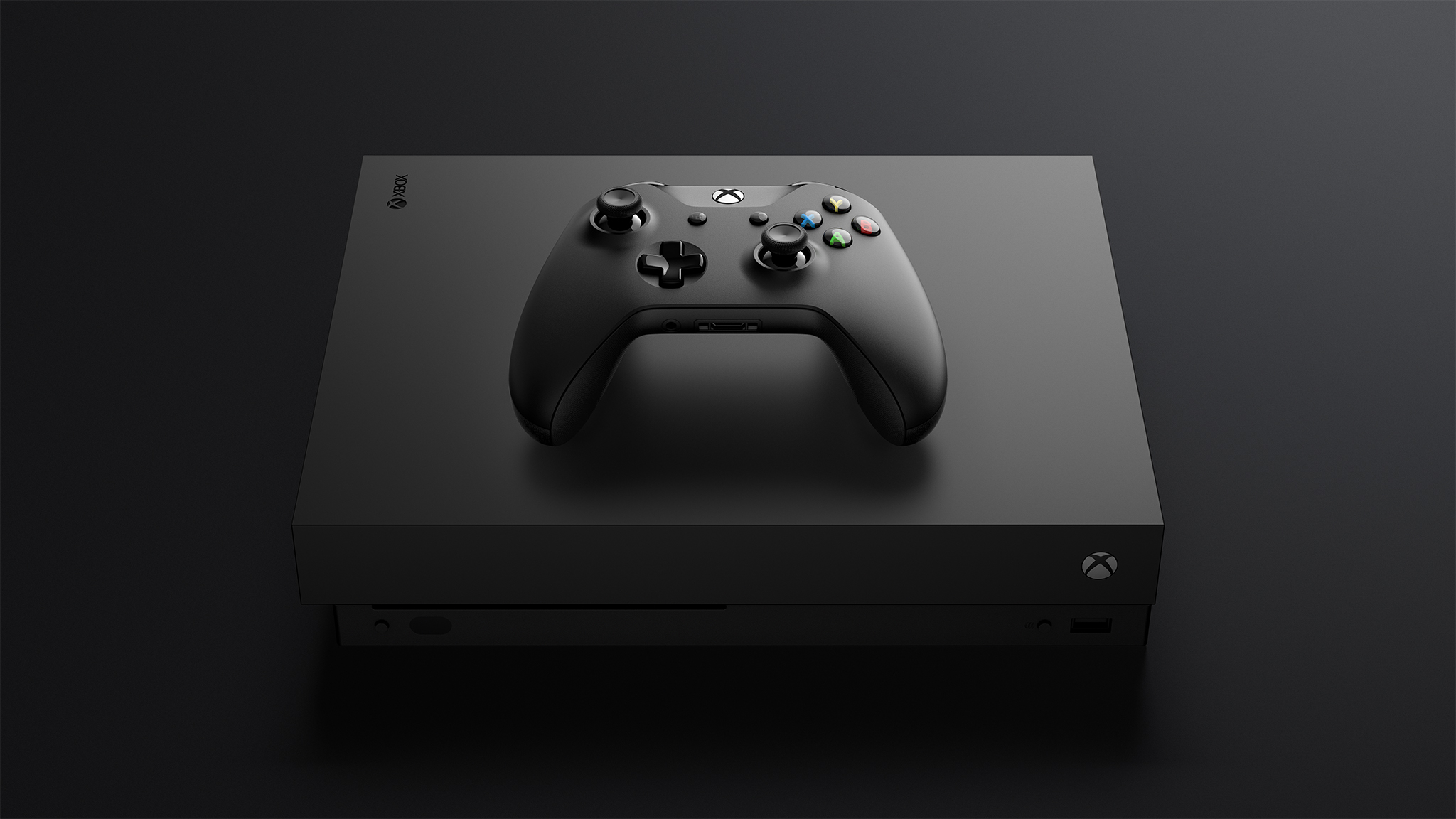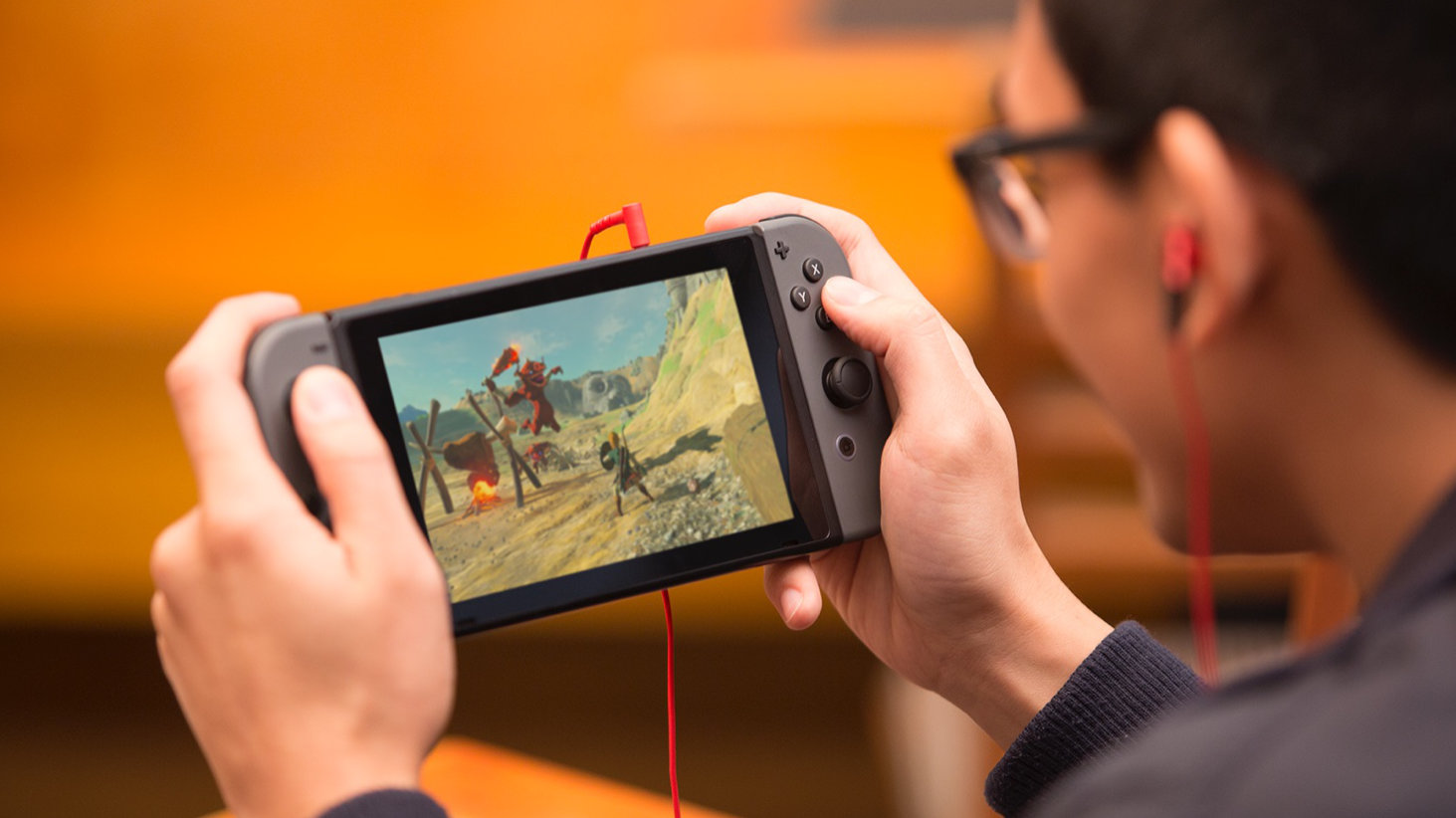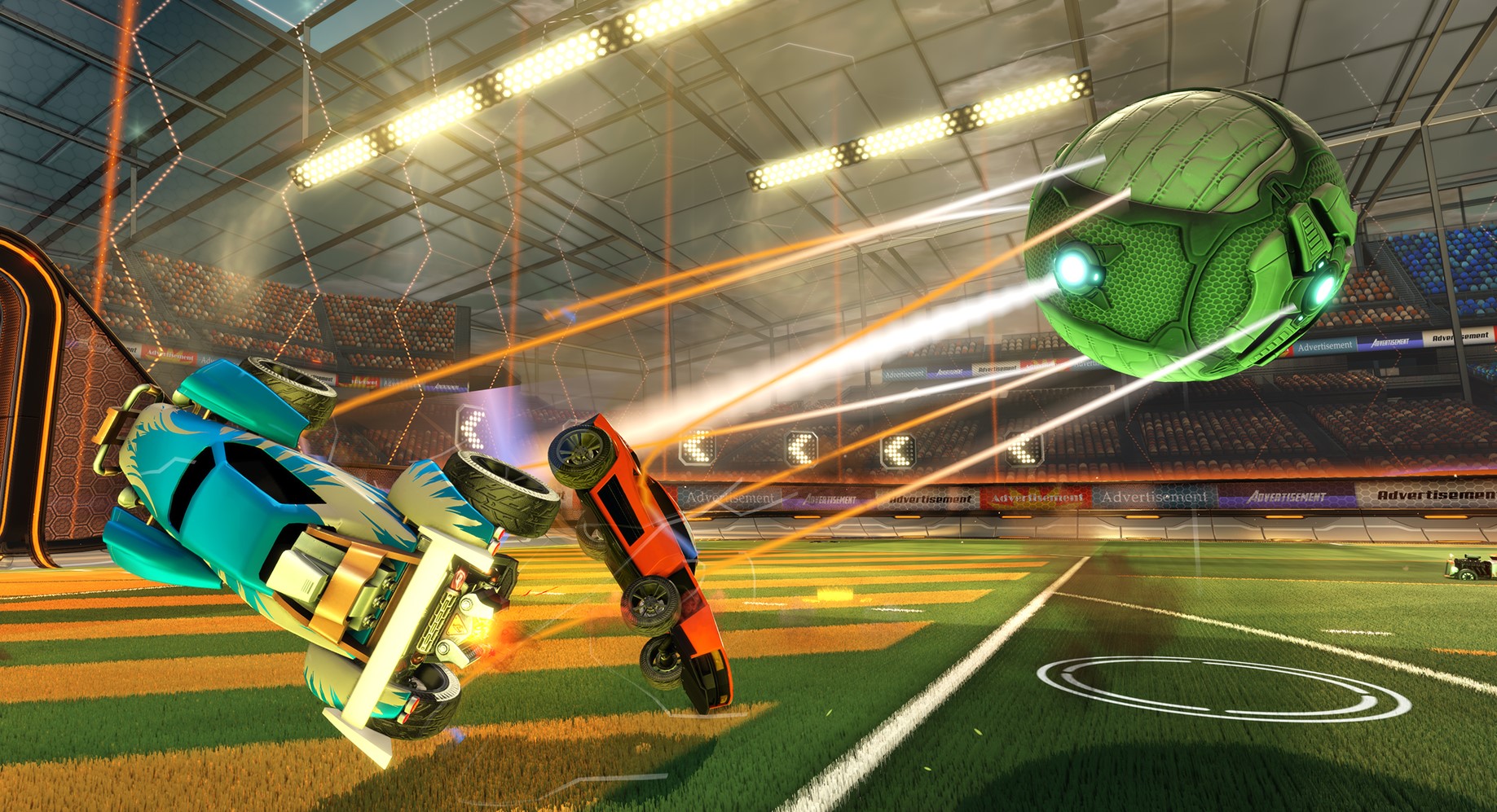Tim Sweeney: 'Refreshing consoles every several years keeps everyone happy'
“Ultimately, I’m an optimist”

As founder and CEO of Epic Games and one of the minds behind the Unreal series of game engines, Tim Sweeney is one of the most recognizable and revered names in game development today.
You can’t work and be so successful in an industry like gaming for as long as Sweeney has without forming some opinions on how things ought to work and how they might look in the future. Fortunately, he's not shy about sharing them.
At this year’s Gamescom we got the chance to sit down with Sweeney who was giving a keynote at the more developer focused Devcom running at the same time.
We took the opportunity to chat with him about the current gaming landscape and how it’s likely to evolve over the next few years. Our conversation covered everything from the Nintendo Switch, Xbox One X and the current debate over cross play to VR, AR, AI and the inevitable rise of the metaverse.
On the first page of our interview you'll find Sweeney's thoughts on the current state of gaming while on the second you'll find the part of our conversation where we gaze slightly further into the future.
We discussed a wide number of topics but one thing that comes across strongly when Sweeney speaks about all of them is his firm belief that gaming should be open and democratic for both players and developers in order to achieve its full potential as a medium.
On Xbox One X and increased iteration
It’s for this reason that Sweeney seems to feel fairly positive about what Microsoft is doing with the Xbox One X and iterative console development:
Get daily insight, inspiration and deals in your inbox
Sign up for breaking news, reviews, opinion, top tech deals, and more.
“The amount of hardware performance there, and especially the graphics performance, is really awesome. It’s gonna be such a great step forward for games, especially those games that push high-end graphics and photo realism.
"We’re able to create stellar graphics on that machine and overall I’m very happy with the trend of incrementally improving consoles rather than starting over and breaking all compatibility every seven years.
"Refreshing hardware every several years, keeping compatibility with the whole base of games I think that’s a really great way of keeping people happy in this industry in the future.”
Microsoft has always been bullish with its backwards compatibility offerings but it’s been really emphasising it now that the Xbox family is larger than ever. According to Sweeney “there’s a huge value in it.”

It’s great from a developer perspective, he told us, because “it means a game developer can build one game in a very straightforward manner and reach a much wider audience” but there are also benefits to the player, too.
“I think one of the major areas of wisdom that’s emerged over the last decade is that there’s huge value to taking a user, a happy customer base you have today, and growing it by introducing new devices that are cross-compatible. It doesn’t create a haves and have-nots situation.
If you tell every console owner that they need to go out and abandon their current console and games and go out and buy a new one it’s going to make buying a new console a much more onerous process. I think we should maintain backwards compatibility as long as we can with new console introduction. I can’t see any natural barrier that would stop that being possible for at least a generation.”
"I think we should maintain backwards compatibility as long as we can with new console introduction"
Tim Sweeney
Even though it feels like longer, it’s only been around a year since the Xbox One S was released and just over three years since the original Xbox One was first launched.
This is a significantly smaller gap than the eight years that passed between the Xbox 360 and the Xbox One so it’s clear that the console life cycle has shortened significantly.
When we asked Sweeney just how often would be too often to release new consoles even if with backwards compatibility he leaned towards every three or four years being the ideal time frame but added that “the key is to update the hardware when there’s enough potential gains and advancements in graphics performance to make it a really meaningful step.”
“I wouldn’t do it just for 40% more power,” he said, “but for two times or four times more power that’s really exciting and worthwhile. I’d say every three or four years.”

When we pointed out that phones manage to release a new and incrementally improved handset every year, with some of them even selling for the same price as brand-new consoles, Sweeney nodded:
“Well every year could work but if you update that frequently developers would face difficulty. You’d have so many different performance levels and be unable to focus on any one.
"The good thing about consoles is we have discrete targets and we can really make our games shine on each one.”
Because it’s promising PC-level power, incremental improvements and the elimination of traditional console generations, there have been rumors that Microsoft is trying to move its consoles in the same direction as PCs.
On the need for choice
A popular theory is that consoles will end up with removable upgradable parts and a variety of graphical settings to choose from. Sweeney is less convinced here, largely because such a change would lock out users who don’t want what PC offers:
“PC is a very hardcore audience and users expect to have so many different knobs that they can tweak to get the right trade off between performance and detail and features"
Tim Sweeney
“PC is a very hardcore audience and users expect to have so many different knobs that they can tweak to get the right trade off between performance and detail and features.
I think console has a more mainstream focus of trying to get developers to create a game that really excels at that one hardware configuration and to define the settings themselves. PC is for people who like to open their computer and replace different bits of the hardware. They love that complexity.”
On the Nintendo Switch
The new kid on the console block that has absolutely no intention of trying to go toe-to-toe with PCs in terms of power is, of course, the Nintendo Switch and Sweeney seems to be very pleased with what Nintendo has done with the console.
“We’re really happy with Switch. The level of performance it delivers in a mobile form factor is amazing and Nintendo did an astonishingly good job with Zelda, which is really kind of re-defining people's expectations of games in that form factor.
It just shows Nintendo thinks on a completely different level to everyone else that’s in the industry. They really like being creative and finding ways to deliver devices people just love.”
"Nintendo thinks on a completely different level to everyone else that’s in the industry"
Tim Sweeney
While PlayStation and Xbox fight it out in 4K, it does seem like Nintendo is forging an entirely different path by prioritizing a high-quality mobile experience over the highest-quality home experience.
When we asked if this is a move that only suits Nintendo or whether the other big console manufacturers would benefit from prioritizing these kinds of accessible convenient experiences over high-end 4K Sweeney was confident there was room for both approaches.

In the way that PCs and consoles meet different needs for different consumers, Sweeney seems to see that as something to be remembered within the console world too:
“Nintendo seems to be really looking at the world where people are playing games on the go now. I mean, in Japan most people ride the subway to work and have downtime to play there. I guess horses for courses is the answer – there are benefits to both.
"There’s some benefits to a piece of fixed function hardware that’s always wired and plugged into a power supply for maximized performance but there’s great value to portability too.”
On cross play
With different consumers being drawn to different consoles to play the same games, cross play has come up time and time again as a bone of contention. In fact, it was raised again not long after we interviewed Sweeney at Gamescom.
At the moment, while console manufacturers are happy to play nice with PC, they’re less keen on working with one another. Sony in particular is known for being resistant here.
“I guess there’s a bit of Game of Thrones going on in the way that console makers deal with each other” Sweeney acknowledged, “but ultimately there’s huge value in enabling gamers to connect with all of their friends.
“There’s a bit of Game of Thrones going on in the way that console makers deal with each other”
Tim Sweeney
"If you look at any gamer, whether they’re an adult or a kid, every gamer has a lot of friends and each has a different device.
"In any circle of friends there’s going to be PlayStation, Xbox and PC users and all of these platforms would benefit greatly from being open and enabling all of these different gamers to play with their friends. I’d love to see some diplomacy. Nations have diplomacy, so maybe console makers could have diplomacy too.
"They’ll find that even though they’re competing on the hardware front there are actually areas of mutual benefit that we should all work together to break down those barriers, for openness and cross play between all platforms. I think all multiplayer games would be better for cross play.”

By putting the current console scenario in the context of modern mobile and social networking use, Sweeney succinctly highlighted how ridiculous the separation is:
“I mean, just imagine if there were several different social networks and one of them only worked on iOS, another only worked on Android, so you could only socialise with your friends on the same platform as you. I mean, how ridiculous would that be?
But that’s the case on console right now.”
On VR
VR, on the other hand, is much more open than it initially was. Manufacturers have been increasingly open to the kind of cross-play we can only dream of on console in an attempt to grow the headsets as a platform and we asked Sweeney if the VR industry is where he thought it’d be this time last year.
“I think we need to be very patient with VR"
Tim Sweeney
“Well it’s slowed down quite a bit in the last six months,” he admitted, before adding “I think we need to be very patient with it. It’s an entirely new kind of platform that requires entirely new applications. It requires new games to be invented. I think we’re moving along [...] The next generation of VR is going to be much more mainstream and much more attractive to users. We might see the user base double, triple or quadruple with each new hardware hardware release. I remain confident in it. I think it can still grow to reach tens of millions in the high-end PC and console space.”
Tens of millions, he told us “is likely the natural size of VR market.” AR, on the other hand, Sweeney said “will ultimately prove the version of that technology that can reach billions of users.”
Emma Boyle is TechRadar’s ex-Gaming Editor, and is now a content developer and freelance journalist. She has written for magazines and websites including T3, Stuff and The Independent. Emma currently works as a Content Developer in Edinburgh.
